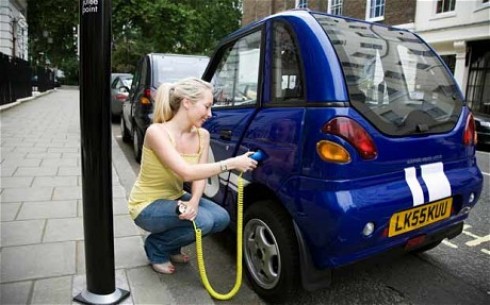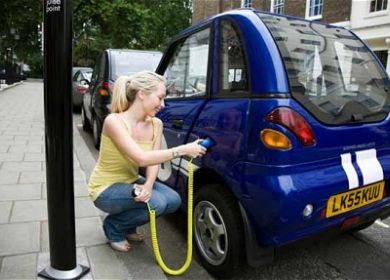Mr Money: Wait for the price revolution before you buy electric Electric vehicles might be great fun to drive, but should consumers be investing in them at this early stage?

Dettagli della notizia
James Murdoch might have been sitting uncomfortably during his recent session at the Commons, but at least he had his old man with him for fatherly support as he was hauled before a group of angry politicians.
When I was summoned to give evidence the same week, I was on my own, with nothing but a ballpoint pen and notepad for company. True, I'm not exactly comparing like with like, as Murdoch & Son were, initially at least, reluctant to appear, and the venue for their double act was a Commons select committee room, whereas I was in the Greater London Authority's main chamber in front of a committee of elected politicians who specialise in environmental and transport matters, and I was a little more enthusiastic.
These MPs know about electric vehicles (EVs), but not nearly enough. And on behalf of millions of people who regularly live or work in or visit London, they were desperately keen to learn more about EVs before they plan for them and, eventually, invest in them.
For example, are such machines really as great for the consumer and the environment as their makers would have us believe? Do they make economic sense for organisations and individuals at this early stage of the game? When energy companies are tasked with providing greater volumes of precious electricity to recharge the battery packs in EVs, will these firms offer consumers a fair deal, reliability and peace of mind? No, no and no were my unequivocal answers to those three questions.
In the interests of fairness and objectivity as an independent "expert witness" (their words, not mine), I thought it right to tell the politicians that some EVs deserve credit where credit is due. But I honestly couldn't help thinking that the longer my inquisitors pressed me on the pros and cons of such vehicles, the less convinced they became by them.
Whether you're a consumer, a business type, or helping to run a giant authority like the GLA, extreme caution on the EV front is strongly recommended.
When asked about the thorny issue of their battery packs, I had to issue a reminder that while mobile phone manufacturers, for example, have made huge breakthroughs in this area over just two or three decades, the motor industry has been disgracefully slow in improving battery-pack design, size, longevity and retail prices.
The MPs said they were well aware of the alleged cost per mile and "emission-free" benefits of running EVs. But my guess is that they're not entirely convinced. And their disbelief seemed to intensify when I informed them that, all things considered – higher initial purchase price, expensive battery-pack replacement costs, uncertain depreciation figures and so on – EVs are currently more expensive overall to buy and run than their internal combustion-engined counterparts.
But, they told me, they and other Londoners are in love with the prospect of zero tailpipe emissions from EVs in their city. I responded by asking if that wouldn't be a selfish case of simply cleaning up London's self-inflicted air pollution problem at the expense of neighbouring counties such as Essex and Kent, which have more than their fair share of polluting power stations. And how do we go about disposing of those colossal battery packs when they effectively die five to 10 years down the road? What Nissan owner in his right mind will spend about £10,000 replacing the battery pack in his ageing Leaf when it's out of warranty?
And while we're at it, should comparatively wealthy private motorists and companies — and even keen-but-cautious local authorities — receive a heavy subsidy of £5,000 from the beleaguered taxpayer every time they take delivery of an all-electric car from the likes of Nissan, Peugeot, Citroën or Mitsubishi?
I like the idea of EVs and I love driving them. More importantly, I can appreciate that they could be just the job for low-mileage drivers. But that doesn't make them an attractive buying proposition today. You only have to look at those absurdly high list prices of about £30,000, the uncertainty of resale values and the lack of roadside charging points for proof of that.
Savvy consumers in the Seventies waited for the dust to settle and prices to decline before they switched from wind-up to digital wrist watches. It was similar in the Eighties and Nineties with VCRs and then DVDs. Now comes the EV. We have to wait for the longer-lasting and more flexible petrol-electric and diesel-electric versions.
Until vehicle makers can offer all-electric, petrol-electric or diesel-electric cars for about the same list price as those powered by internal combustion engines only, give them a wide berth. Today the typical EV is prohibitively expensive. Within a year or two it will not be. While you wait for the EV pricing revolution, hang on to your old car. It's a no-brainer.

